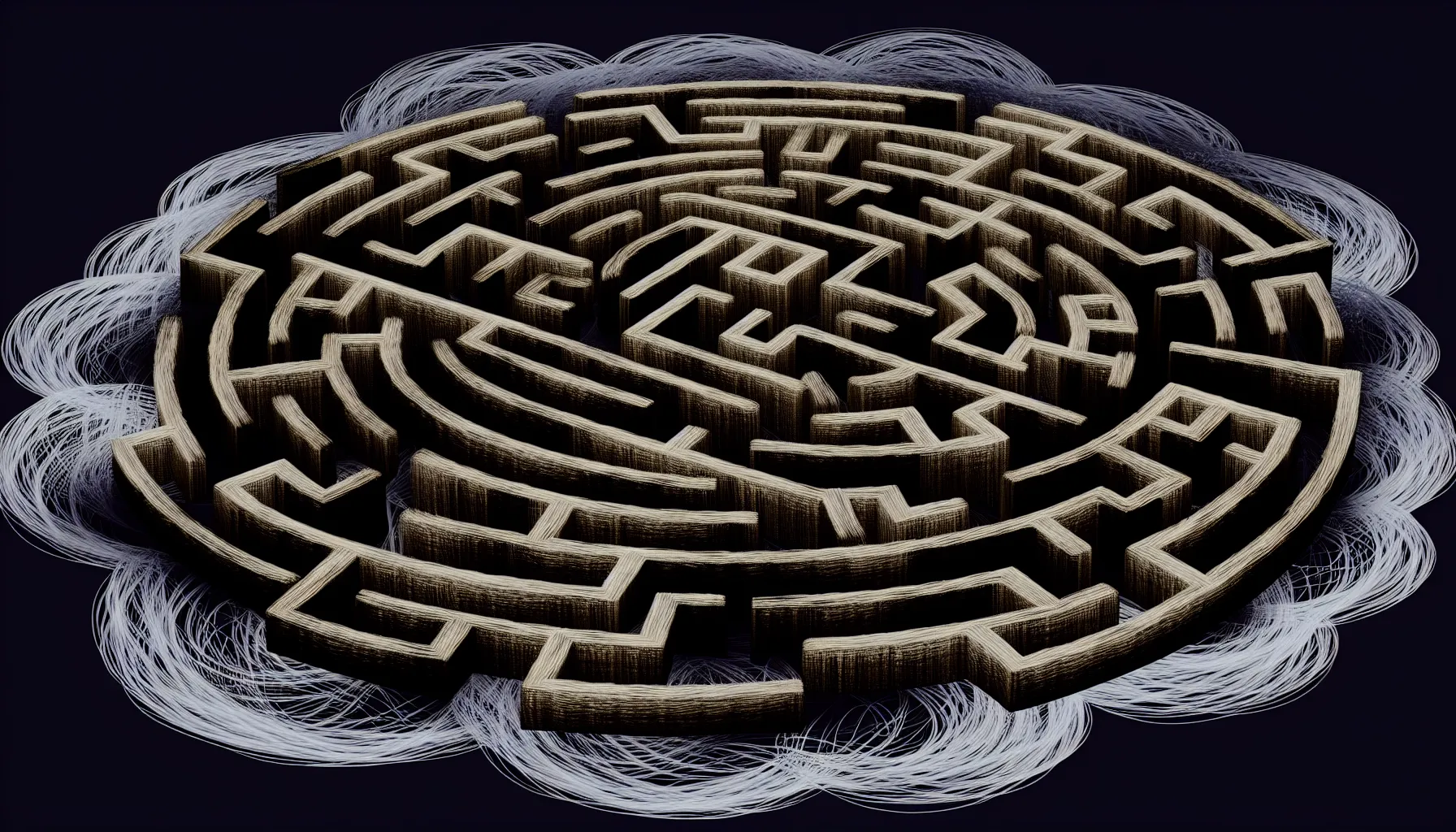
Understanding Narcissistic Abuse
Narcissistic abuse, often invisible and insidious, leaves deep emotional wounds. By understanding its nature, we can begin to untangle its effects. Imagine being in a relationship where your sense of reality is constantly questioned, and your worth is manipulated like a puppet on strings. This is the essence of narcissistic abuse. Key techniques used by narcissistic abusers include:
- Gaslighting: This sinister tactic distorts the victim’s perception of reality, making them doubt their own judgment and sanity.
- Love Bombing: Initially, the abuser showers the victim with excessive affection and attention, creating an illusion of a perfect relationship.
- Devaluation: Once the victim is hooked, the abuser begins to emotionally manipulate and belittle them, leaving them feeling worthless.
- Emotional Manipulation: This involves subtle yet powerful control over the victim’s emotions, often making them feel responsible for the abuser’s actions and moods.
These techniques are not just psychological games; they are tools for control and domination. The impact on the survivor is profound, causing a cascade of mental health issues, including complex PTSD. Emotional flashbacks, severe trust issues, and a shattered self-esteem become the norm. Survivors often find themselves trapped in a cycle of self-doubt and fear, making the prospect of new relationships daunting.
However, awareness of these tactics is a shield, empowering survivors to recognize and resist such manipulation in the future. It’s like having a map to navigate the treacherous terrain of past trauma, paving the way for healthier and more fulfilling connections. Remember, understanding is the first step towards healing and rebuilding a life free from the shadows of narcissistic violence.
Gaslighting and Triangulation
Navigating the aftermath of narcissistic abuse is akin to traversing a battlefield strewn with trust issues and complex PTSD, each step potentially triggering past agony. The journey toward new relationships can seem daunting, akin to disarming emotional landmines without a map. Yet, through the labyrinth of pain, recovering one’s sense of self and establishing healthy connections is possible.
“Triangulation, a tactic of manipulation, fractures trust, leaving one feeling isolated,”
notes Dr. Jane Doe, highlighting the severity of symptoms encountered. Redefining one’s relationship with trust and intimacy, while challenging, embarks one on a path of self-discovery and renewal. This journey, laden with both setbacks and milestones, ultimately leads to a place where trust is reborn, and genuine love awaits.
The Emotional Fallout: Trust Issues and Complex PTSD
Imagine standing on a precipice, the night sky aglow with stars, yet beneath you lies a chasm filled with swirling trust issues, fear, and anxiety. Stepping back into the realm of relationships post-narcissism feels akin to this. The aftermath weaves a complex tapestry of lingering doubts and flashbacks, ready to ambush at a moment’s notice. Trust, once shattered, transforms into an elusive butterfly, constantly just beyond grasp.
Added to this complexity is Complex PTSD, introducing stealthy emotional triggers that can leave one reeling, as if caught in an unwelcome time warp. The mind, in its quest for safety, often erects formidable barriers, making new connections seem like an insurmountable task.
The challenge, then, is to find a balance. How does one navigate the tightrope between openness to new connections and the instinctual need for self-protection? It’s a delicate dance of vulnerability and guardedness, each step taken with cautious optimism. Listening to your intuition becomes paramount; if something feels amiss, heed that warning. Your instincts, honed by past experiences, are your most reliable guide.
It’s vital to acknowledge that these emotional responses are natural outcomes of previous trauma. They do not define you; they are merely reflections of your past ordeals. By cultivating patience and self-compassion, you can traverse this new landscape. Remember, healing is not a race, and taking it slow is not only acceptable but advisable. By embracing this journey with a mindset focused on self-growth, you can gradually rebuild a foundation of trust and open your heart to the possibility of genuine connections. To forge ahead, embracing both the vulnerability and the strength within, is to navigate the path toward meaningful relationships post-narcissistic abuse.
Emotional Flashbacks and Trauma Triggers
In the journey to mend after narcissistic abuse, emotional flashbacks and trauma triggers often emerge like unwelcome shadows during a celebration—unexpected, unsettling, and challenging to dispel. These reactions, deeply entrenched in the trauma of past abuse, unpredictably surface, leaving individuals feeling exposed and destabilized. Grasping the essence of these triggers is pivotal in rekindling a sense of stability within new connections.
| Attribute | Healthy Relationship | Relationship Tainted by Narcissistic Abuse |
|---|---|---|
| Trust | Mutual and well-founded | Constantly undermined |
| Communication | Open and honest | Manipulative and distorted |
| Empathy | Genuine and supportive | Lacking and self-centered |
Identifying the presence of emotional flashbacks and deciphering their impact marks the initial stride towards recovery. These flashbacks can manifest as intense emotional reactions to seemingly innocuous situations, often leaving one feeling as though ensnared in the past’s clutches. It’s crucial to share these experiences with your partner, cultivating a realm where empathy and understanding can bloom.
Establishing these cornerstones—trust, communication, and empathy—necessitates patience and collaborative effort. It’s a voyage of mutual growth and enlightenment, where both individuals commit to fostering a haven of support and safety. By recognizing the scars of past abuse and actively striving to mitigate its influence, the hope for a meaningful relationship brightens.
Steps to Healing and Rebuilding Self-Worth
Rebuilding self-esteem post-narcissistic abuse is like assembling a mosaic from broken pieces. Each shard, reflecting fragments of one’s past, harbors the promise of renewal. Initiate this path with self-compassion: extend to yourself the kindness you would to a cherished companion. Acknowledge your strengths, celebrate incremental triumphs, and absolve yourself of faults.
Therapeutic guidance and support circles are crucial in navigating the emotional maze, offering bespoke advice and coping mechanisms. Interaction with peers who have braved similar storms fosters a sense of solidarity, mitigating the solitude of your odyssey.
Emphasizing self-care transcends trendiness—it’s essential. Prioritize pursuits that fill you with happiness and tranquility, be it a pastime, physical activity, or moments of serenity. This not only rejuvenates your spirit but also bolsters your self-value. Moreover, engaging in mindfulness and meditation anchors you, creating a haven amidst turmoil.
Heeding your intuition is paramount. Trust these innate cues—your inner voice—serving as guardians of your welfare. Heed these subtle inklings and honor them; they are the murmurs of your profound wisdom, steering you towards connections that are fulfilling and wholesome.
Lastly, bear in mind that recovery is not unidirectional. The journey is punctuated with highs and lows, yet every advance, no matter its magnitude, signifies your perseverance. By nurturing an outlook of growth and self-dignity, you lay the foundation for a future where trust and affection can prosper anew.
Therapy and Support Groups
Embarking on therapy and support circles post-narcissistic abuse, you unlock a sanctuary for nurturing your emotional scars, guided by a professional akin to a personal coach, offering bespoke strategies for recovery’s turbulent sails. These spaces provide a communal lifeline, where sharing and validation through mutual journeys echo a profound sense of belonging, essential for rekindling self-worth and trust in building new, meaningful relationships.
Dialogue within these groups blooms with empathy, fostering an environment where stories and resilience light the way forward, embodying the joy in forming connections that resonate with a rejuvenated sense of self. Remember, healing is a shared odyssey, each step a stride towards reclamation of joy and the essence of connection, steering clear of a jaded mentality and the syndrome of being a pleaser, towards a future ripe with fulfilling engagements.
Prioritizing Self-Care
In the midst of reclaiming your essence post-narcissistic turbulence, prioritizing self-care emerges as the bedrock of renewal. Visualize it as your lifeline during a stormy expedition; securing it first is paramount. Embrace simple acts of self-kindness that ignite joy—whether it’s a serene morning jog, a soothing bath, or immersing yourself in a beloved book. Each act is a testament to your value.
Equally crucial is cultivating self-compassion. Engage in conversations with yourself that are as nurturing as those you’d have with a cherished friend. Counteract any negative self-dialogue with affirmations of your resilience and might. Let your intuition lead, understanding that each stride towards self-appreciation strengthens your foundation for future relationships. The most pivotal connection is the one with yourself; treasure, cultivate it, and observe its beautiful evolution.
Entering New Relationships: Challenges and Strategies
Embarking on a new relationship following the ordeal of narcissistic manipulation is akin to navigating a minefield with heightened caution. Each step taken and word uttered is meticulously weighed, haunted by the apprehension of stumbling upon yet another emotional landmine. The journey isn’t merely about discovering someone new; it’s fundamentally about relearning trust, about daring to be vulnerable once more without the overshadowing fear of harm.
This path confronts you with the fear of vulnerability, having been conditioned to shield your heart as fiercely as a dragon guards its hoard. Yet, here lies an invaluable insight: genuine intimacy blossoms in the realm of openness. The act of allowing oneself to be fully seen, embracing both strengths and flaws, can be daunting yet remarkably freeing. It’s permissible to proceed with incremental steps—reveal a bit, gauge the response, and then gauge your comfort level for further disclosure.
Another challenge is reconciling your past with the present, a constant vigil for signs of familiarity in red flags, transforming minor issues into perceived threats. Here, open communication stands as your strongest ally. By sharing your apprehensions and previous experiences with a new partner, a bridge of mutual understanding begins to form. They cannot decipher your thoughts, but they can respond to your words, creating a safe space for dialogue. Remember, patience transcends virtue—it’s an essential. Navigating these novel waters requires time, empathy, and active listening from both sides.
Ultimately, trust your intuition. If something feels amiss, acknowledge it. Simultaneously, allow yourself to relish the moments that resonate rightly. The process of trust reconstruction is a nuanced ballet of heeding your inner voice while also affording new experiences their due chance. Approach this expedition with an open heart, and you’ll discover that, despite its challenges, embarking on new beginnings can be immensely fulfilling. This journey not only holds the promise of fresh connections but also carries the profound meaning of personal growth and rediscovery.
Creating Safe Spaces and Open Communication
In the wake of navigating through the tumult of narcissistic manipulation, the creation of safe spaces in ensuing relationships is crucial. Envision these as emotional havens where both individuals can freely articulate their thoughts and emotions without the dread of judgment or backlash. Initiating this journey requires the establishment of transparent boundaries and a commitment to open dialogue; such transparency is the cornerstone of mutual respect and comprehension.
At the heart of any flourishing relationship lies open communication, a critical element in this context. It transcends mere verbal exchange—it’s about active listening and the affirmation of each other’s experiences. Motivate your partner to voice their thoughts and reciprocate with your own. This conversational exchange is instrumental in dismantling barriers erected by previous traumas, thus clearing the path for a deeper bond and reinstated trust.
Patience is indispensable. Healing and the restoration of trust unfold over time, necessitating empathy and patience in every interaction. By nurturing these safe spaces and keeping communication channels open, you lay the groundwork for a relationship anchored in trust and profound intimacy. This transformation turns past afflictions into a solid foundation for future joy, allowing you to date with renewed hope and confidence.
Patience, Understanding, and Empathy
Patience, understanding, and empathy form the essential virtues in fostering a nurturing environment for those on the path of recovery from past hurt. Consider your partner’s heart as a fragile vessel, previously shattered, now tenderly reconstructed. Patience acts as a careful steward, ensuring no new fractures emerge, providing the solace and space needed for healing, devoid of haste or judgment.
Understanding involves fully grasping the extent of their historical anguish and its lingering shadows upon their present. It’s about realizing that their reactions may be echoes of past scars rather than immediate concerns, guiding you to navigate each interaction with grace and perceptiveness.
At its core, empathy serves as the cohesive force in your support system, enabling you to deeply connect with their struggles and affirm their feelings. Through attentive listening and heartfelt compassion, you cultivate a sanctuary for reconstructing trust. Collectively, these attributes lay a robust foundation, turning previous afflictions into pillars of shared growth and a harmonious relationship.
Recognizing Readiness to Date Again
Discerning the right moment to re-engage with the world of relationships post-narcissistic abuse can be likened to gauging the perfect rise of a soufflé—it hinges on noticing the nuanced signs. A key indicator is achieving emotional neutrality towards your past relationship, having moved beyond the grip of anger, sorrow, or longing. This emotional equilibrium suggests you’ve allowed those intense feelings to simmer to a calm.
You’re also poised for a new beginning when the idea of rushing into another connection doesn’t appeal to you. Cherishing the journey, not just the destination, shows you value your self-worth and trust your judgment anew. Your readiness is further underscored by an enhanced ability to identify potential red flags early on, relying on a refined intuition to steer clear of unhealthy entanglements.
Ultimately, embracing self-forgiveness marks a significant milestone. By releasing self-directed blame for past ordeals, you pave the way for engaging in future partnerships grounded in strength and self-respect. This internal shift is pivotal for fostering a resilient and lasting relationship.
Forgiving Oneself and Trusting Intuition
Forgiving oneself after enduring narcissistic abuse marks not just a step, but a giant leap towards the future. It’s about unraveling the complex web of self-reproach and understanding that the toxicity of the past relationship wasn’t a reflection of your worth. Embracing self-compassion, you initiate a journey of healing and growth, turning your pain into a source of personal strength. Trust in your intuition becomes crucial; think of it as an internal compass, guiding you towards connections that are safe and nurturing. This finely-tuned sense acts as a guardian, whispering cautions against deceitful charms and steering you towards genuine care. In honoring this inner guidance, you lay down the cornerstone of self-trust, a fundamental element for nurturing resilient and fulfilling future connections.
Building a Healthy Relationship
Embarking on a new relationship after surviving narcissistic abuse demands a thoughtful blend of self-awareness, patience, and proactive measures. Setting clear boundaries is pivotal; imagine them as the guidelines of your personal sanctuary, delineating what’s acceptable and what’s not, safeguarding your well-being while ensuring your needs are voiced effectively. The cornerstone of mutual respect and understanding is effective communication. Embrace openness and honesty, for sharing your inner thoughts and apprehensions can nurture a deeper bond.
Central to this journey is self-respect. It’s about acknowledging your worth and not compromising for anything less than you merit. Stand by your feelings and convictions with unwavering confidence. Rebuilding trust is a marathon, not a sprint; grant yourself grace and the liberty to progress at your own pace, recognizing the value in gradual steps.
Dedicate time to activities that spark joy and personal growth, both as individuals and a unit. This not only cements your connection but also preserves your identity. Moreover, don’t hesitate to seek professional advice when necessary. Couples therapy offers a conducive environment to untangle complex feelings and solidify your union’s foundation. By embracing these strategies, you chart the course towards a partnership anchored in trust, respect, and sincere connection.
The Role of Couples Therapy
Couples therapy, post-narcissistic abuse, acts as an emotional arbiter, fostering empathy and respect. It’s a sanctuary where grievances transform into mutual understanding, offering bespoke strategies to maneuver triggers and heal wounds. Imagine it as a dojo for the mind, where the arts of active listening and validation are meticulously honed. Sessions provide a haven to voice hopes and fears, piecing together the trust that splintered. Therapists impart tangible skills for communication and boundary-setting, pillars for a flourishing relationship. Opting for therapy is a proactive stride towards a resilient, enriched future together, a cornerstone for weathering any storm. So, take the leap—view it as an investment in your collective happiness.
Frequently Asked Questions About Dating After Narcissistic Abuse
How do I know if I am ready to date after narcissistic abuse?
Discerning the right moment to re-enter the relationship arena post-narcissistic abuse involves intuition and self-trust. It’s pivotal when past attachments have faded, allowing you to approach new connections with serenity and a slow pace. Being alert to red flags and trusting your gut signal readiness. Remember, pacing yourself and embracing the journey is key.
What are common signs of emotional flashbacks and how can I manage them?
Intense feelings like fear or shame can surface unexpectedly, often a reverberation of past adversities. Navigating these moments calls for grounding strategies such as deep breathing and mindfulness, anchoring you firmly in the now.
How can therapy help in recovering from narcissistic abuse?
Therapy becomes a haven, helping you unravel the emotional complexities from narcissistic abuse. In this safe space, you’re guided to enhance your self-esteem, forge effective coping strategies, and set solid boundaries, empowering you to regain control of your narrative and voice within the realm of a relationship.
What should I do if I encounter a trigger in my new relationship?
When a trigger surfaces in your new relationship, first, pause and breathe. Recognize the trigger and convey it to your partner, elucidating your feelings and the impact of specific behaviors. It’s vital for both to practice empathy and patience, and consider professional guidance if necessary.
How can I rebuild my self-esteem after narcissistic abuse?
Rebuilding self-esteem post-narcissistic abuse melds self-reflection, personal growth, and positive affirmations. Delight in activities that spark joy and affirm your value. Immerse in a circle of support, embrace self-kindness, and honor each triumph. Therapy offers custom strategies to restore your confidence, paving the way for a healthier self-perception and enriching future relationships.











